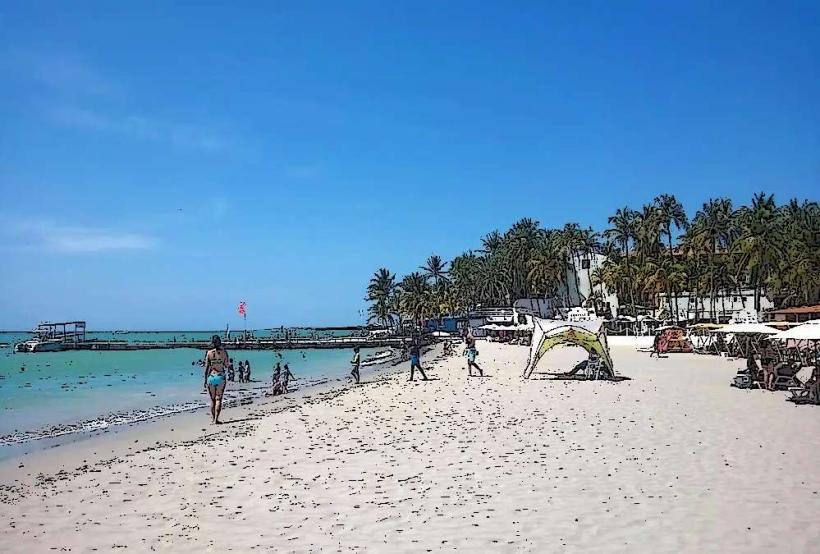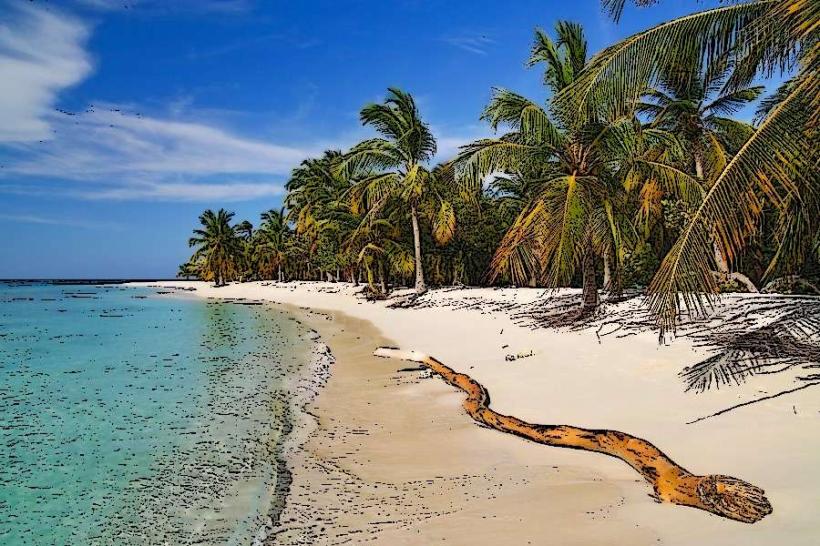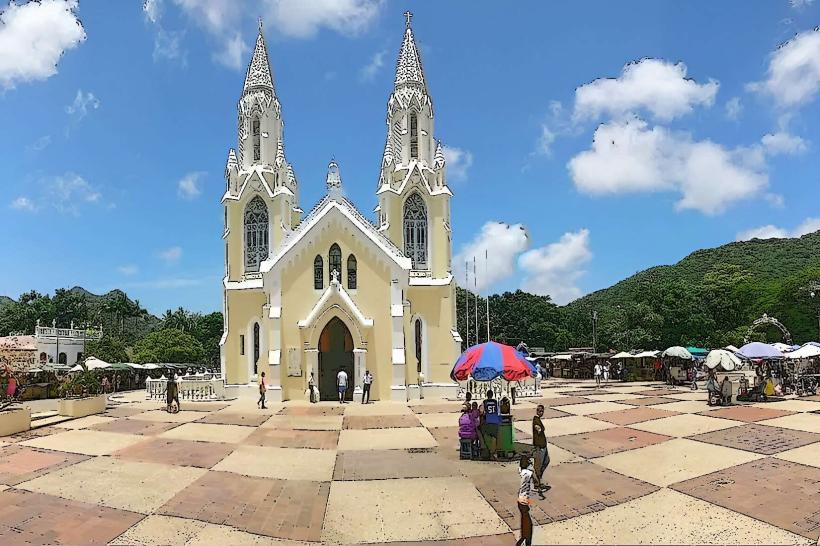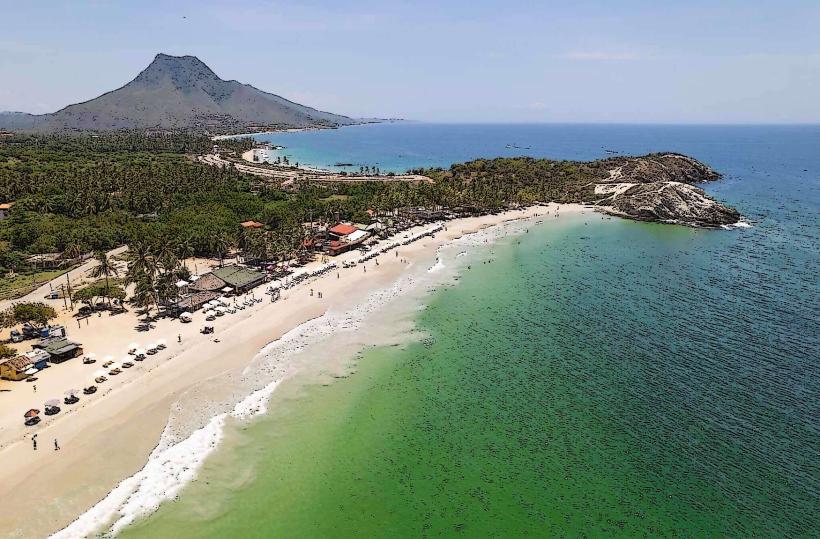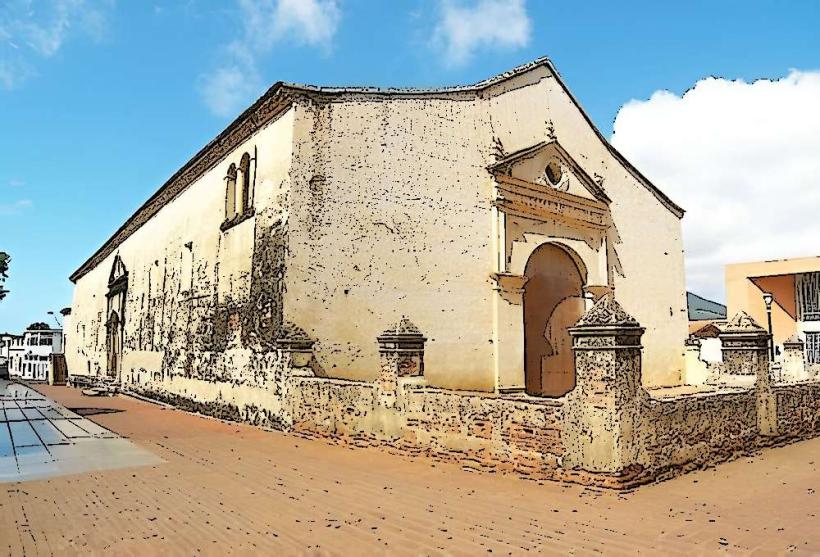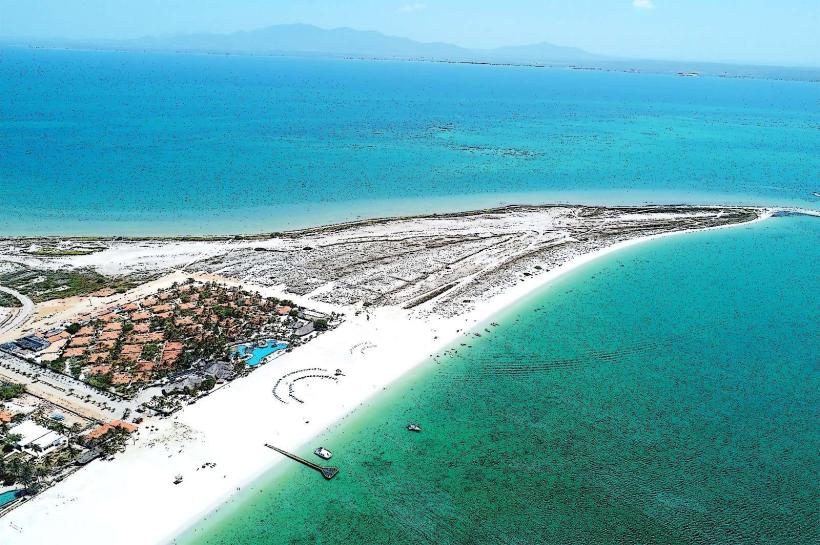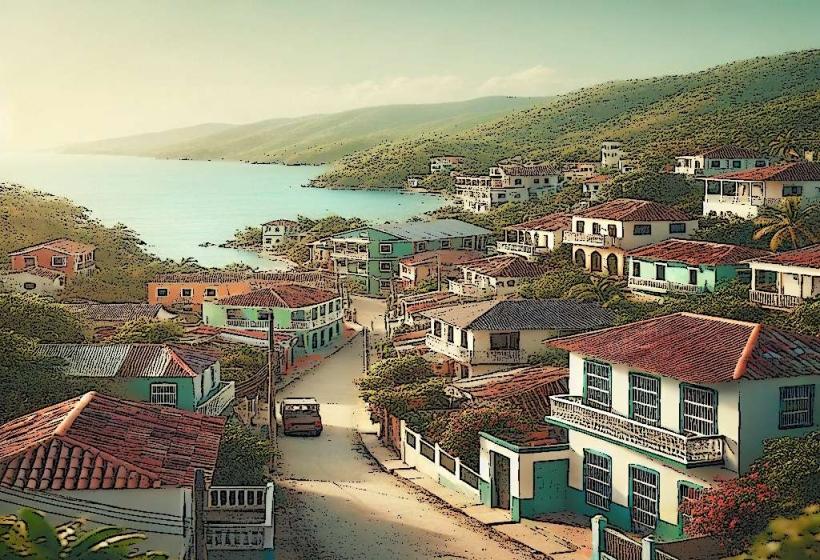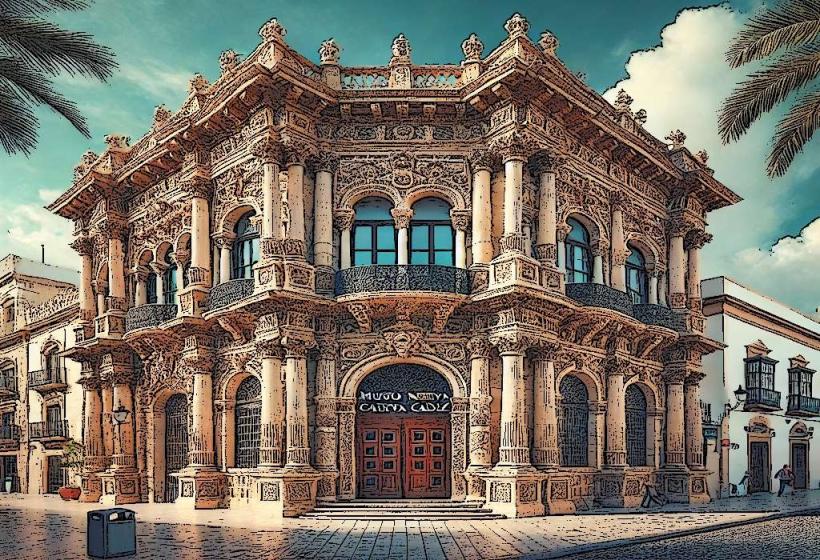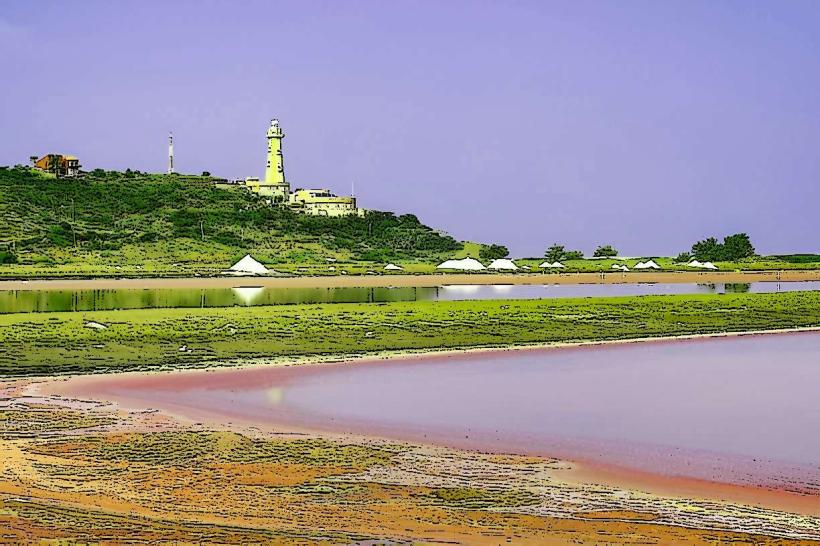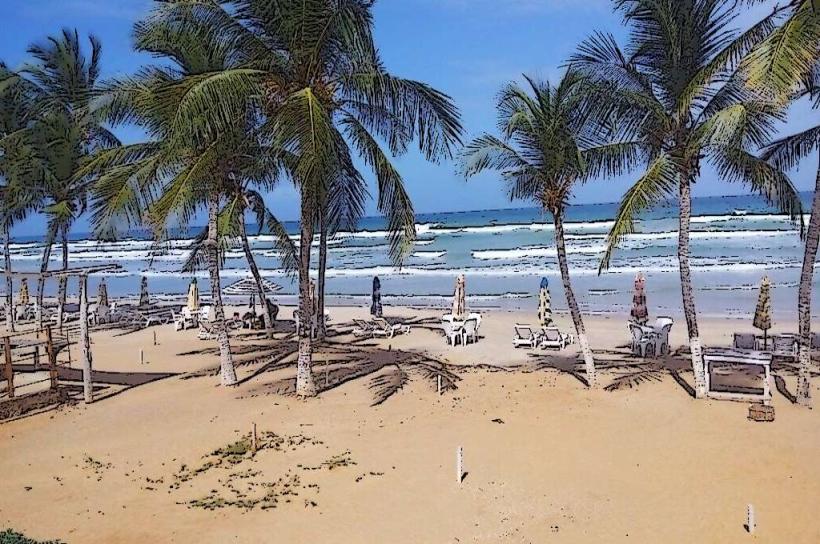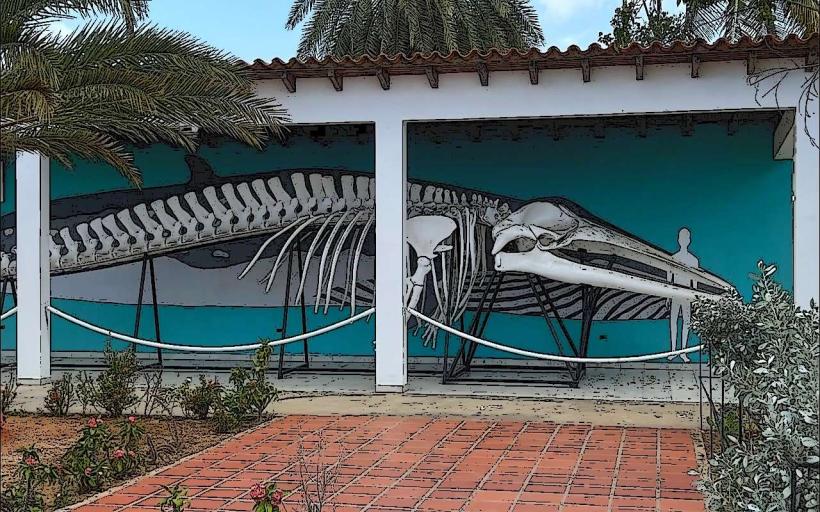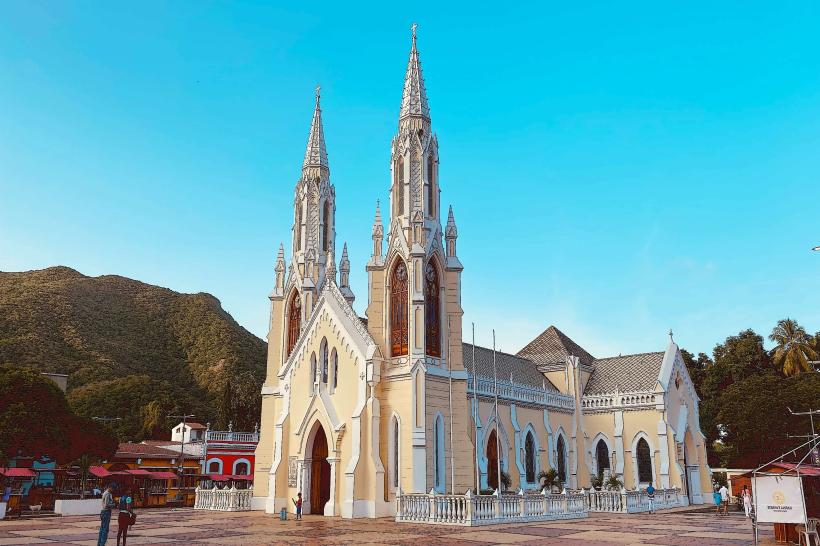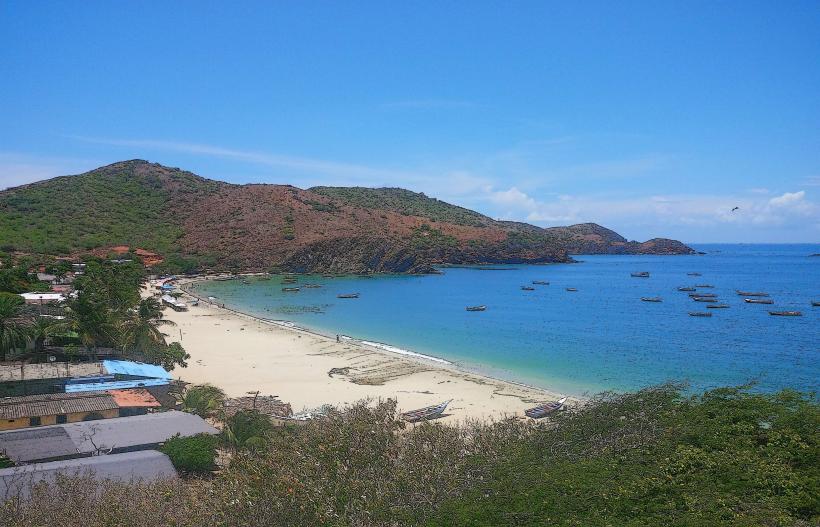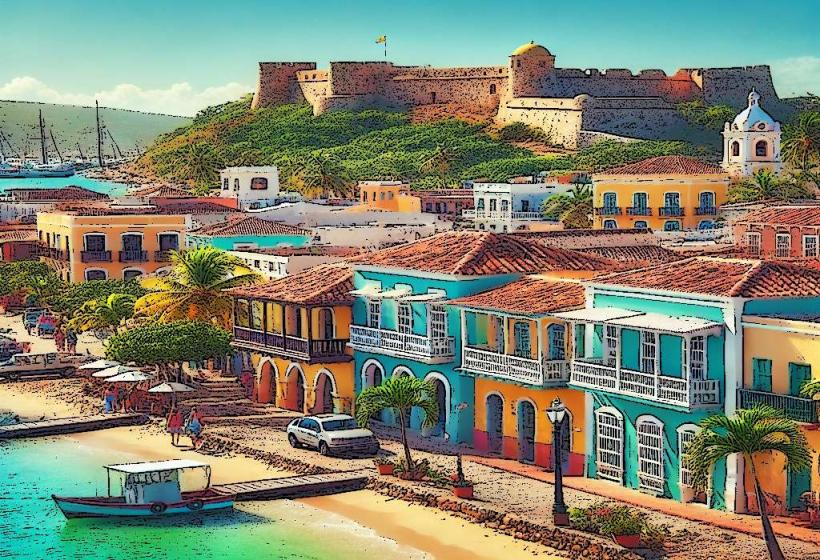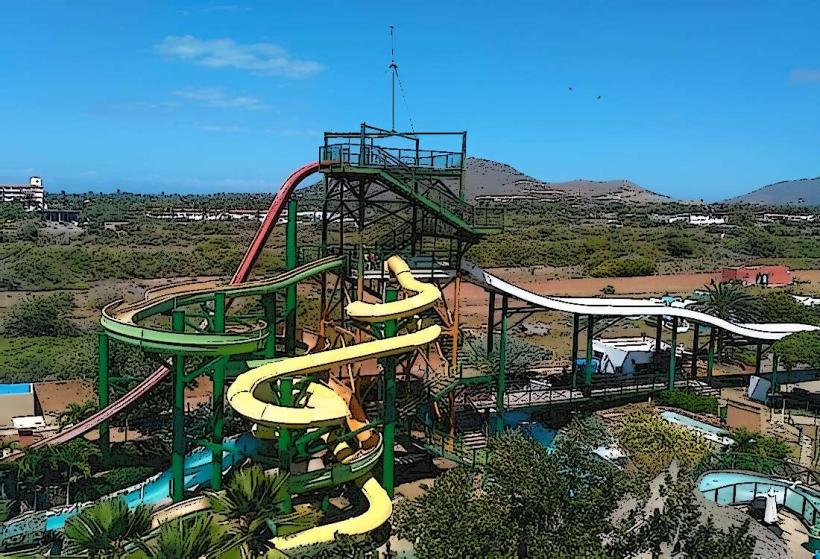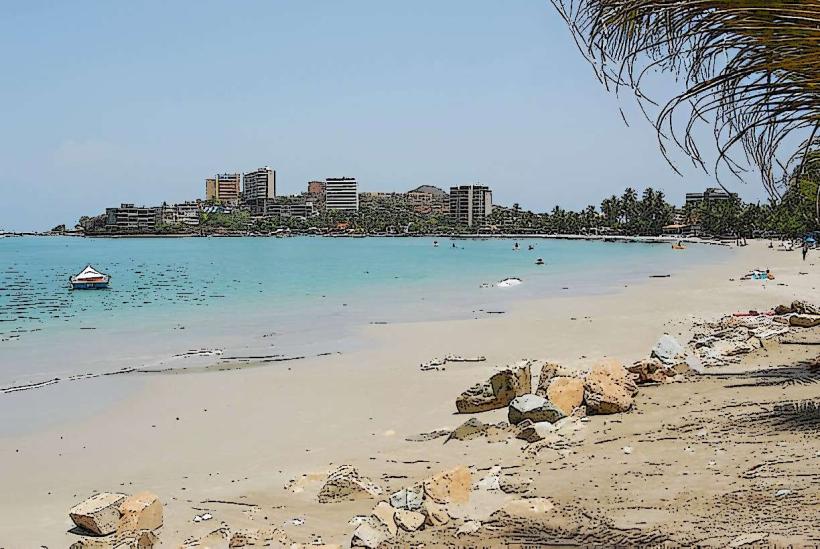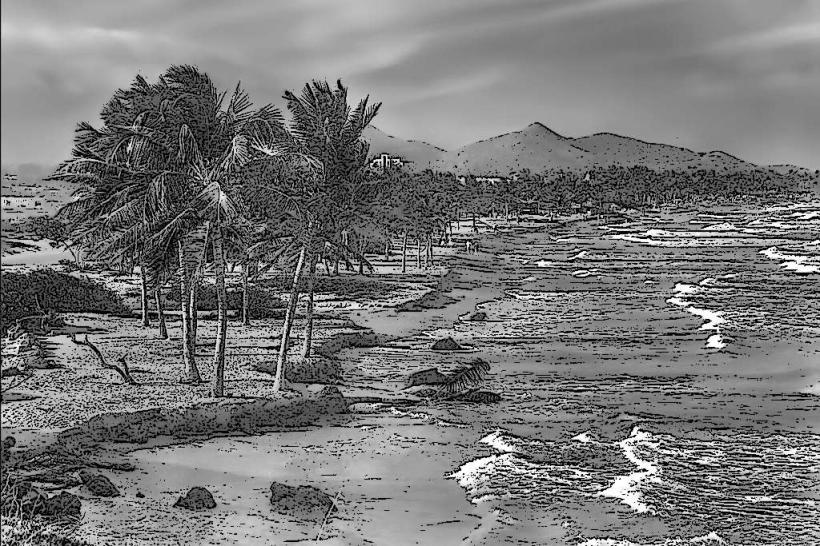Information
Landmark: El Mercado de PorlamarCity: Margarita Island
Country: Venezuela
Continent: South America
El Mercado de Porlamar, Margarita Island, Venezuela, South America
El Mercado de Porlamar is a public market located in Porlamar, Margarita Island, Venezuela. It serves as a central hub for commerce and local produce.
Visual Characteristics
The market structure is a large, rectangular building with a corrugated metal roof supported by steel beams. The exterior walls are primarily concrete, painted in a light beige color. Open-air stalls extend from the main building, covered by tarpaulins and awnings in various colors, predominantly blue and green. The interior is characterized by rows of vendor tables and displays, with concrete flooring throughout.
Location & Access Logistics
El Mercado de Porlamar is situated in the downtown area of Porlamar, approximately 1.5 kilometers east of the city center. Access is via Avenida Santiago Mariño. Limited street parking is available in the surrounding blocks, often requiring payment to local attendants. Public bus routes serving Porlamar frequently pass along Avenida Santiago Mariño, with stops directly adjacent to the market.
Historical & Ecological Origin
The market was constructed in the late 1970s, with its primary purpose being to consolidate local agricultural and artisanal trade into a single, accessible location. It was designed to support the island's economy by providing a platform for vendors to sell their goods directly to consumers.
Key Highlights & Activities
Visitors can purchase fresh fruits, vegetables, and seafood. Artisanal crafts, including pottery and textiles, are also available. Sampling local food items from prepared food stalls is possible. Bargaining with vendors is a common practice.
Infrastructure & Amenities
Restrooms are available within the main building, though their condition can vary. Some covered areas provide shade from direct sunlight. Cell phone signal (primarily 3G and 4G) is generally consistent within the market. Numerous small food vendors operate within and immediately surrounding the market, offering prepared meals and snacks.
Best Time to Visit
The market is most active in the morning, from approximately 7:00 AM to 12:00 PM, when fresh produce deliveries are at their peak. Mid-morning offers a balance of activity and available stock. The best months for visiting are generally from December to April, coinciding with the drier season.
Facts & Legends
A local anecdote suggests that the market's original design was intended to be a covered shopping mall, but economic shifts led to its adaptation as a traditional open-air market. It is said that the quality of the mangoes sold here is unmatched due to specific microclimates on the island.
Nearby Landmarks
- Plaza Bolívar (0.8km West)
- Centro Comercial Parque Costazul (2.1km Northeast)
- Fortaleza de San Carlos Borromeo (4.5km Northwest)
- Laguna de La Restinga National Park (12.0km West - outside 5km radius, but significant)

